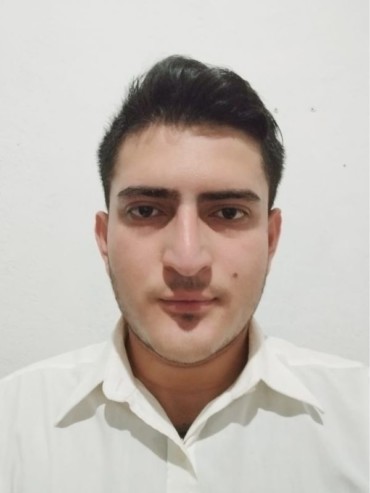Querer es poder (see the meaning of this at the bottom of the article).
The Spanish verb Poder can have 2 meanings. One as a verb, that is what we will see here, and the other as a noun. We use “poder” as a verb to refer to abilities or permission different from the English language. In English, we use “To can” to talk about abilities but use “May” to talk about permission. In Spanish, we can say (¿puedo ir al baño?) and can also say (puedo volar), if you see there is no change as in English that we would say “May I go to the restroom?” Or “I can fly”.
As a noun, “poder” means power; it is used to talk mainly about political power; however, it is also used to talk about sources of energy or to talk about those special abilities we see in fiction movies. For example: (El presidente concentra todo el poder), (Superman tiene el poder de volar), (El poder de los autos es la gasolina).
In this post, we will just focus on the use of ‘’poder’’ as a verb.
Before you continue reading, take this account:
- Poder is a very irregular verb, be careful!
- Do not forget poder can have 2 meanings; can/may and power.
- We use ‘’poder’’ to ask for permissions.
- We use ‘’poder’’ to talk about natural or trained abilities.
Let’s learn together!! As Poder is an essential verb to have in your vocabulary!
These are some examples of phrases in the indicative mode of this important verb…
- Yo puedo caminar.
- Pudiste ver la película
- Usted no podía ir al cine.
- Nosotros podremos hacer el trabajo
- Ustedes podrían mirar la televisión.
| Subject | Present | Perfect Preterit (past) | Imperfect preterit (past) | Future simple | Conditional |
|---|---|---|---|---|---|
| Yo (I) | Puedo | Pude | Podía | Podré | Podría |
| Tú (you | Puedes | Pudiste | Podías | Podrás | Podrías |
| Él (he)/ella (she) /usted (you: formal) | Puede | Pudo | Podía | Podrá | Podría |
| Nosotros (we) | Podemos | Pudimos | Podíamos | Podremos | Podríamos |
| Ustedes (you: plural)/ellos (They: mas.) /ellas (They: fem.) | Pueden | Pudieron | Podían | Podrán | Podrían |
Analyze the previous chart and let’s review some examples.
We use the present tense to talk about certain abilities we have. It is also used when we want to ask for permission from someone who has more authority than us. For example, (¿Puedo ir al baño?) (May I go to the restroom.) this is a common expression used by students when they want to ask their teachers for permission. Another example could be (Puedo correr más rápido que tú.) (I can run faster than you). In this case, we use “poder” to express an ability that maybe is better than one of another person.
Perfect preterit tense is usually used to talk about actions that we could develop in a specific moment in the past. For example: With (Pude pasar el examen.) the subject expressed that he was able to pass an exam, but it is not a permanent ability.
We use imperfect preterit to express abilities we used to have in past periods of time. For example: (Antes del accidente, ella podía ver.) (Before the accident, she could see.) This phrase would be said about a blind person, who had the ability to see before a certain accident.
We use the future simple to communicate abilities that we think we will be able to achieve in the future. For example: (Podremos hablar español perfectamente.) (We will be able to speak Spanish perfectly.). In this case, we are saying that in the future we will acquire the ability to speak Spanish.
We use the simple conditional tense to express abilities that hypothetically we would have if certain conditions were given. For example: (Si ustedes hablaran español, podrían viajar a muchos países.) (If you spoke Spanish, you would be able to travel to different countries.). In this case, we are talking about a hypothetical situation that would happen if someone had a certain ability.
| Subject | Compounded perfect preterit (Present perfect) | pluperfect (past perfect) | Perfect future | Perfect Conditional |
|---|---|---|---|---|
| Yo (I) | He podido | Había podido | Habrá podido | Habría podido |
| Tú (you) | Has podido | Habías podido | Habrás podido | Habrías podido |
| Él (he)/ella (she) /usted (you: formal) | Ha podido | Había podido | Habrá podido | Habría podido |
| Nosotros (we) | Hemos podido | Habíamos podido | Habremos podido | Habríamos podido |
| Ustedes (you: plural)/ellos (They: mas.) /ellas (They: fem.) | Han podido | Habían podido | Habrán podido | Habrían podido |
As you already know, perfect tenses also exist and “poder” is not the exception. We build them using the past participle of the verb, in this case; podido…
Let’s see!
We use the compounded perfect preterit to express an ability we have had since a certain time, but we currently keep it. For example: (Hemos podido enfrentar el invierno desde 1999.) (We have been able to face the Winter since 1999.).
We use the pluperfect to express a certain ability we had in the past before developing the action we are telling someone: (Cuando llegué, ya había podido entrar.) (When I arrived, he had already been able to get in.).
We use the perfect future to express an ability or goal we are certain we will achieve. For example: cuando termine el año, ya habré podido graduarme (by the time the year is over, I will have been able to graduate) In this case, we use it to say that when something is done, we will have achieved a goal.
We use perfect conditional to express hypothetical situations where we think maybe we could have done something extraordinary. For example (Si hubieras tenido tu celular, habrías podido ayudar.) (If you had had your cell phone, you would have been able to help.). In this case, we are saying that if someone had done certain action, he would have been able to do something.).
Let’s go through the subjunctive mode:
| Subject | Present | Imperfect preterit | pluperfect | Perfect preterit |
|---|---|---|---|---|
| Yo (I) | Pueda | Pudiera | Hubiera podido | Haya podido |
| Tú (you) | Puedas | Pudieras | Hubieras podido | Hayas podido |
| Él (he)/ella (she) /usted (you: formal) | Pueda | Pudiera | Hubiera podido | Haya podido |
| Nosotros (we) | Podamos | Pudiéramos | Hubiéramos podido | Hayamos podido |
| Ustedes (you: plural)/ellos (They: mas.) /ellas (They: fem.) | Puedan | Pudieran | Hubieran podido | Hayan podido |
Subjunctive is usually used to express wishes, wants and hopes. And it is typically introduced by the words: <<que, ojalá, espero (que), si…, cuando>>.
We use present tense when we want to express our wish for someone to have an ability or chance. For example: (Espero que puedas viajar esta noche.) (I hope you can travel this night).
When we talk about a hypothetical possibility which has a consequence; usually used with perfect conditional, we use imperfect preterit: (Si pudiera recordar la contraseña, ya lo habría hecho.) (If I could remember the password, I would have already done it.)
The pluperfect is used to express a hypothetical situation about something it could have been done, but it was not done: (Hubiéramos podido llegar a tiempo si no hubiéramos perdido nuestras llaves.) (We could have been able to arrive on time if we hadn’t lost our keys.).
When we want to anticipate something will be achieved, and we would like something to be done in that moment, we use perfect preterit: (Serás libre cuando hayas podido probar tu Inocencia. (You will be free when you have been able to prove your innocence.).
Although the imperative mode exists with this verb, we do not use the imperative in real language because we cannot make someone have an ability they don’t have.
Spanish Verb Poder – Quiz/Worksheet
1. Yo _______ correr. (indicative: present)
2. Nosotros _______ ________ podido hacer esto durante años. (indicative: present perfect)
3. Ellas _______ graduarse (indicative: perfect preterit)
4. Melissa ______ salir cuando termine sus tareas. (indicative: future simple)
5. Jhonny y Fernando _______ correr antes de su accidente. (Indicative: imperfect preterite)
6. Cuando tú ________ me dices. (subjuntive: present)
7. Ojalá Adriana _______ ver esto (subjuntive: imperfect preterit)
8. Si no hubieras llegado tarde, ________ _______ ganar un premio. (subjuntive: pluperfect)
9. Cuando (nosotros) _________ _________ entender el mensaje, te diremos. (subjuntive: imperfect preterit)
10. Espero que (nosotros) ______ viajar el próximo viernes. (subjuntive: present)
Answers:
1. Puedo
2. Hemos podido
3. Pudieron
4. Podrá
5. Podían
6. Puedas
7. Pudiera
8. Hubieras podido
9. Hayamos podido
10. Podamos
Meaning of the Phrase at the Top:
“Querer es poder” is a common phrase that is used as a motivational quote and means that if we really wish something, we’ll be able to achieve it.
About the Author:

Specializations: Spanish Tutors on Skype
Bio: I am Julio Martinez, I have studied a bachelor’s degree in language teaching since 2019, and I am close to get graduated. I have work as English teacher in some institutions in Colombia, I have also worked as tutor supporting some students to improve their Spanish levels and as tutor for personalized French classes. By the same way, I speak not only Spanish and English but also French and Portuguese, I have been participating in a research group of language teaching for people with difficulties. As well as, I have participated in different seminars of different institutions and Universities in the field of languages teaching.
View my Profile to Book a Private Spanish Lesson
Other articles: Spanish Verb Salir Conjugation, Spanish Verb – Poner Conjugation, Conjugation of Verb Elegir in Spanish – Meaning and Examples, Conjugation of Spanish Verb – Servir, Conjugation of the Spanish Verb Seguir



